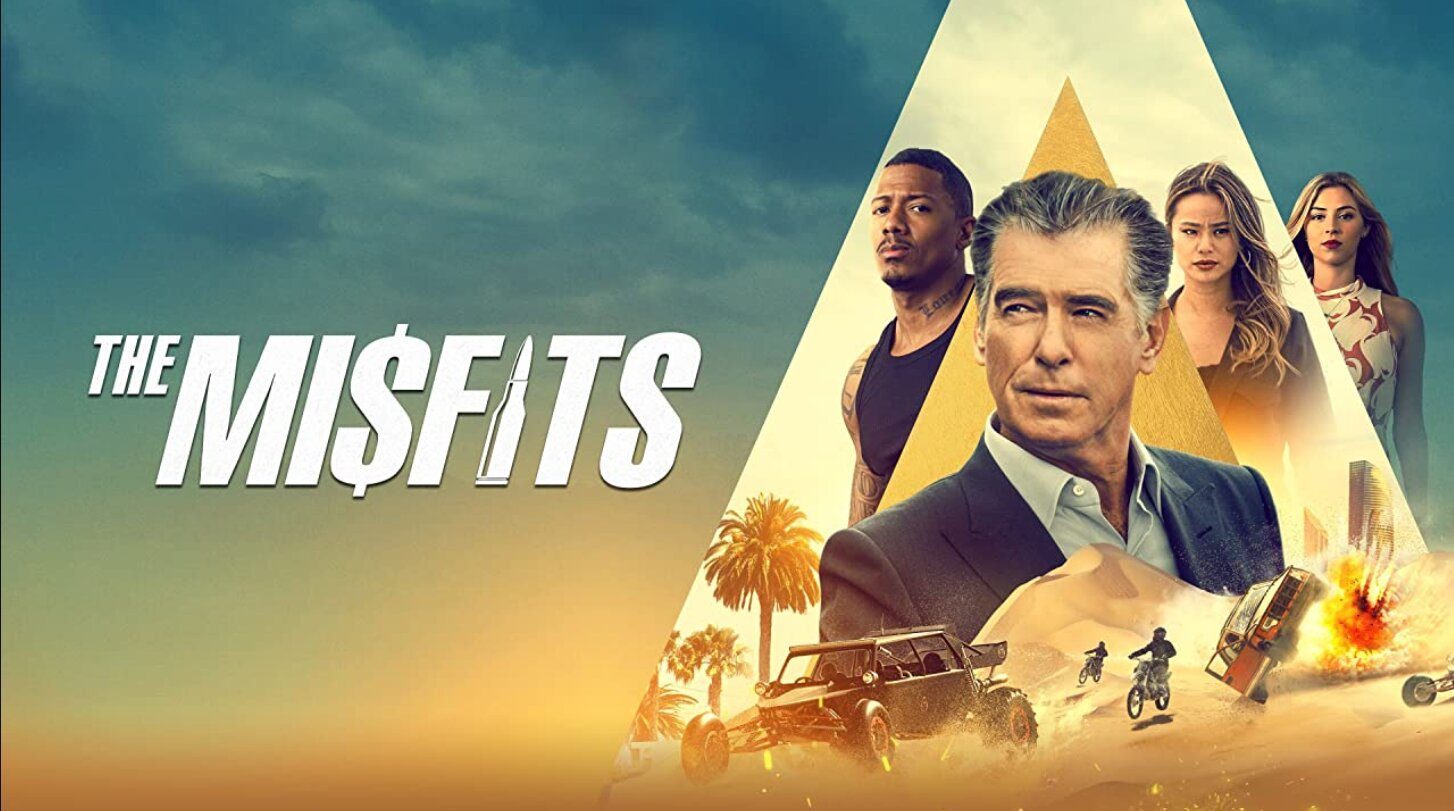Since Doha News reported on the controversial film, VOX Cinemas confirmed it would no longer be screening the movie in Qatar.
Al Jazeera’s investigative show “What’s Hidden is More Immense” [Ma Khafiya A’tham], returned with another episode on Sunday revealing details about a targeted anti-Qatar campaign by the UAE in a newly-released Hollywood film dubbed “The Misfits”.
In the movie, filmed and financed by Emirati owned film production company FilmGate Production, Qatar is referred to as “Jazeeristan,” a nation whose citizens support terrorist organisations and whose leadership finances global terrorism – an accusation used by the former blockading quartet in 2017 to impose sanctions on Doha.
The latest Al Jazeera investigation highlighted how Abu Dhabi switched the film’s original scenario from a mere fictional production to a politically-driven movie that specifically spreads propaganda against Qatar by including senior figures, known sites in Doha and even features the country’s “Lekhwiya” police force.
According to a script seen by Al Jazeera, names of prominent figures such as Muslim cleric Sheikh Yousef Al Qaradawi emerged frequently, and in one instance, his image briefly appeared on screen. The movie attempted to portray the world renowned cleric as an instigator of violence, the show said.
In a leaked exchange, Emirati producers reportedly asked the American production company to make amendments in the script to include more political scenes.
“Abu Hirawa’s real name should be Abd Al-Rahman Al Nuaimi…Al Qaradawi should get an acting scene as well, not only talked about by Agent Tamera,” said part of a message sent to the American producers.
While the film was shot in Abu Dhabi, it was edited to look as if it was taking place in Qatar, with the corniche’s skyline and several other attractions in Doha making an appearance.
The investigation also revealed how Emirati armed forces appeared to have supported the production team by providing military gadgets, weapons and vehicles for use as props.
Additional financial backing was provided by a company owned by UAE’s National Security Adviser Tahnoun bin Zayed Al Nahyan, who is also the son of the founder of the Emirates Sheikh Zayed bin Sultan Al Nahyan.
The company, Al Muqatra General Trading llc., transferred some $980,125 to fund the film in 2019.
But despite the funding, the production was not all smooth sailing.
Disputes had reportedly emerged between production companies, with one of the main producers, Rami Jaber, filing a lawsuit against his Emirati partner in US court following a disagreement over the content of the movie.
A leaked audio clip obtained by Al Jazeera showed the Emirati producer Mansoor Al Dhaheri, Founder and CEO of FilmGate Productions and AlKalema Productions, offering the claimant large sums of money to drop the lawsuit.
“I’m offering you more. Everything is okay from my side, I don’t have any problems. Some $100 million isn’t an issue for me,” said Dhaheri in the recording.
Speaking to Al Jazeera’s presenter and journalist Tamer Al-Meshal, Jaber said that Dhaheri used to work at the UAE’s diwan before becoming a producer and had barely showed up on set.
In the Al Jazeera episode, Al-Meshal called Dhaheri to request a Skype interview.
“My brother, respected media personality Al-Meshal, are you reaching out to me because I’m Emirati?” said Dhaheri, agreeing to be interviewed two days after Al-Meshal called him.
Shortly after the call, Dhaheri stopped responding.
The production, filmed throughout the 2017 Gulf crisis that saw the UAE, Saudi Arabia, Bahrain and Egypt sever diplomatic ties with Qatar and impose an illegal air, land and sea blockade, scurried to make amendments earlier this year to keep up with political developments.
Read also: VOX drops controversial UAE-funded ‘The Misfits’ movie from Qatar cinemas
In January, all entities involved in the Gulf crisis ended the dispute with the signing of the Al Ula Declaration, forcing producers to change the featured map of Qatar to one of a fake country dubbed “Jazeeristan”.
However, the changes just weren’t enough. Qatar’s Lekhwiya forces were visibly shown on screen, as was the Doha-based Al Emadi hospital where prisoners were transferred in the movie.
Shortly after the film was promoted, the hospital filed a lawsuit against the production company for mentioning its name without permission while offending Qatar.
Similarly, Qatar’s Dar Al Sharq Media Group also demanded legal action against the producers of the film.
Qatar,UAE ties
In 2017, Saudi Arabia, the UAE, Bahrain and Egypt severed all ties with Doha and imposed an illegal, air, land and sea blockade.
Shortly after the signing of the Al-Ula accord, the UAE reopened its airspace for Qatar’s airlines and reportedly resumed trade activities. Meetings between officials have also been reported with positive feedback.
Despite the progress made in diplomatic relations, the emergence of the film has added to a long list of media hostilities targeting Qatar, generating questions on the status of reconciliation between Abu Dhabi and Doha.
Follow Doha News on Twitter, Instagram, Facebook and Youtube







